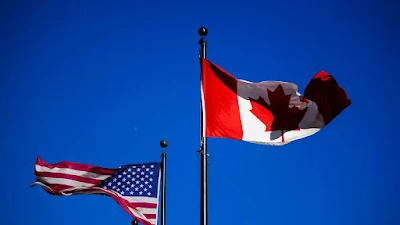Prime Minister Mark Carney has signaled that Canada may escalate counter-tariffs on U.S.-produced steel and aluminum unless a broader economic and security agreement with the United States is concluded within the next 30 days. The warning follows Washington’s recent decision to double import duties on steel and aluminum, a move that has drawn strong reactions from Canadian industry stakeholders.
Speaking at a press conference on Thursday, Carney said Ottawa is prepared to recalibrate its current tariff measures on July 21 in response to progress—or lack thereof—in the ongoing negotiations. “Canada will adjust its existing counter-tariffs on U.S. steel and aluminum products on July 21 to levels consistent with progress made in the broader trading agreement with the United States,” he stated.
Earlier this month, U.S. President Donald Trump increased tariffs on steel and aluminum imports from 25% to 50%, citing national economic interests. The decision poses a significant challenge to Canada, which supplies more steel and aluminum to the U.S. than any other country. In return, Canada is a major market for U.S. metals, purchasing roughly 20% of American steel exports and nearly 50% of its aluminum, according to the Royal Bank of Canada.
While Ottawa has not yet matched the latest U.S. tariff hike, Carney noted that restraint is conditional. “We are monitoring developments closely,” he said, indicating that a comprehensive bilateral deal could avert further escalation. A tentative deadline of July 21 has been set for concluding talks.
Canada had already imposed retaliatory tariffs on March 13—25% on C$12.6 billion worth of U.S. steel products and C$3 billion worth of aluminum. As part of Thursday’s announcement, the government introduced new procurement policies that prioritize domestic producers and reciprocal trade partners in federal infrastructure and defense contracts.
Additional measures include the introduction of tariff-rate quotas, capping imports of steel products from non-free trade agreement (non-FTA) countries at 100% of 2024 levels. The aim, Carney said, is “to stabilize the domestic market and prevent harmful trade diversion.”
With Canada’s ambitious plans for infrastructure expansion—from defense projects and energy pipelines to large-scale housing development—the demand for steel and aluminum is expected to surge. “We are united in supporting the Canadian metals industry,” Carney emphasized. “That starts with buying Canadian steel and aluminum for federal projects.”
The government also announced the formation of a task force to monitor evolving dynamics in the steel and aluminum sectors under the current tariff regime. It will assess supply chain resilience, market stability, and the impact of trade policy on Canadian producers.
As negotiations continue, the outcome could shape not only North America’s metals trade but also the broader economic partnership between the two nations.




.png)
The opinions posted here do not belong to 🔰www.indiansdaily.com. The author is solely responsible for the opinions.
As per the IT policy of the Central Government, insults against an individual, community, religion or country, defamatory and inflammatory remarks, obscene and vulgar language are punishable offenses. Legal action will be taken for such expressions of opinion.